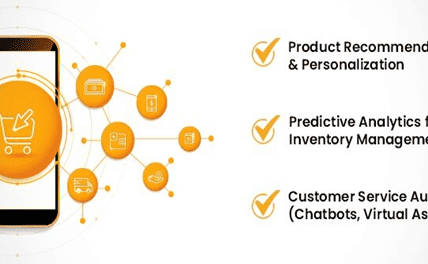Featured image by Gorodenkoff
In an age where technological innovation shapes every facet of our lives, can the sanctity of the industrial workplace be left untouched? As industries evolve at a breakneck pace, the fusion of cutting-edge technology and safety measures is no longer a distant dream but a tangible reality. This article ventures into the realm of advanced technologies that are transforming the industrial workplace. Moreover, they are also fortifying workplace safety.
Join us on a journey into a future where the health and well-being of the workforce are protected not only by regulations and gear but also embedded in the very DNA of industrial processes. Let’s begin!
RELATED ARTICLE: 7 WAYS TO PROMOTE A CULTURE OF SAFETY IN YOUR ORGANIZATION
Automation: Precision and Protection in the Industrial Workplace
The adoption of automation technologies is revolutionizing safety in the industrial workplace. Gone are the days when hazardous tasks were the sole burden of human hands. Today, sophisticated automated systems are taking the helm, performing high-risk activities with precision and reliability. These systems are mitigate the risk of accidents. They also redefine the nature of industrial work by allowing human beings to channel their talents toward more strategic, less hazardous tasks. Automation therefore emerges not merely as a tool for productivity but also as a guardian of safety. This ensures that the danger inherent in industrial tasks is borne not by humans but by machines.
While embracing high-tech solutions for safety in the industrial workplace, it’s also imperative to address the less conspicuous but equally dangerous threats. That is, we must not ignore those threats that are hidden within the very air of our industrial enclaves. Among these guardians are tools like the dust collectors system. These tools ensure the purity of the workplace atmosphere.
Acting as silent sentinels, these systems tirelessly combat airborne pollutants. Indeed, they maintain an environment as pristine as the principles of our safety protocols. By adeptly capturing and removing fine particles, these tools safeguard the respiratory health of the workforce. Meanwhile, they also bolster operational efficiency by preserving clean, contaminant-free workspaces. They are a testament to the often-overlooked elements in the safety arsenal that play a fundamental role in our shared endeavor for a safer, healthier industrial workplace.
Wearable Tech for the Industrial Workplace
Wearable technology is breaking new ground in the quest for a safer industrial workplace. These devices have with sensors and smart capabilities that offer a personalized layer of protection. From monitoring vital signs to detecting exposure to hazardous substances, wearable tech acts as a constant, vigilant companion. Moreover, wearable tech ensures that workers’ safety is a priority and a continuously monitored reality. These devices are transforming the industrial uniform into a dynamic shield. They offer protection and a real-time understanding of the worker’s environment.
AI and Predictive Analytics
Artificial Intelligence (AI) and predictive analytics are ushering in an era of proactive safety in the industrial workplace. These technologies are not just about responding to accidents but preventing them. By analyzing massive amounts of data, AI systems can predict potential safety hazards, from equipment failure to unsafe working conditions, allowing for timely intervention. This predictive approach is a monumental shift from reactive safety measures. It marks a future where the best response to a safety incident is ensuring it never happens.
Augmented Reality (AR) for Training and Maintenance
Augmented reality (AR) is redefining training and maintenance, which are critical aspects of safety in the industrial workplace. AR applications offer immersive, interactive training experiences, allowing workers to hone their skills in a risk-free virtual environment. Similarly, AR transforms maintenance procedures, overlays digital information onto physical equipment, guides maintenance staff through complex processes, and ensures every step is performed safely and correctly. Therefore, AR is not merely a tool for enhancing efficiency. It is also a medium for embedding safety into the fabric of industrial operations.
Robotics: The Tireless Protectors
In the domain of industrial safety, robots are emerging as tireless protectors in the workplace. From handling hazardous materials to performing tasks in extreme environments, robots are taking on roles that were once the source of significant risk for human workers. These mechanical allies are not just reducing workers’ exposure to dangerous conditions. They also ensure that workers can navigate such conditions with precision and safety, thanks to advanced programming.
IoT for Safety Monitoring and Communication
The Internet of Things (IoT) knits a web of safety across industrial settings. With interconnected sensors and devices, the IoT ecosystem offers a real-time overview of the industrial workplace environment, from monitoring air quality to tracking equipment functionality. This interconnectedness ensures that every aspect of the workplace is under continuous scrutiny, with communication channels allowing instant alerts and swift responses, ensuring that safety is not just an individual responsibility but a collective, interconnected assurance.
RELATED ARTICLE: ESTABLISH A SAFETY MANAGEMENT SYSTEM TO MEET OSHA STANDARDS
Weaving Safety into the Fabric of the Industrial Workplace
But the question lingers: Are we ready to embrace this new era, to weave the fabric of safety into the very heart of our industrial operations? The answer lies in our collective resolve not only to adopt these technologies but to adapt our mindset, to view every technological stride not just as a step towards efficiency in the workplace but as a leap toward a safer, more secure industrial landscape.
The road ahead is paved with infinite possibilities, and as we march forward, let it be with the conviction that every innovation, every advancement, is a brick in the edifice of a safer industrial world. For in the grand tapestry of industrial progress, the threads of technology and safety are interwoven, each strengthening the other, together weaving the narrative of a future where the workplace is not just a site of productivity but a sanctuary of well-being.
RELATED ARTICLE: SAFETY MEASURES FOR A CONSTRUCTION BUSINESS

